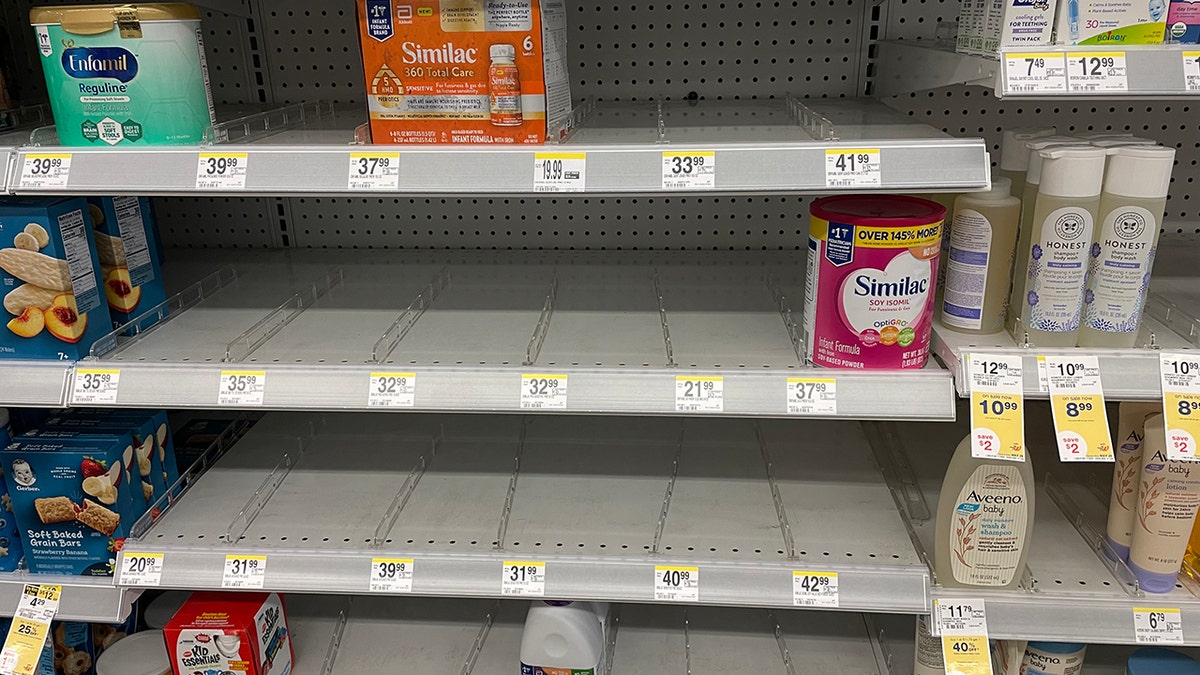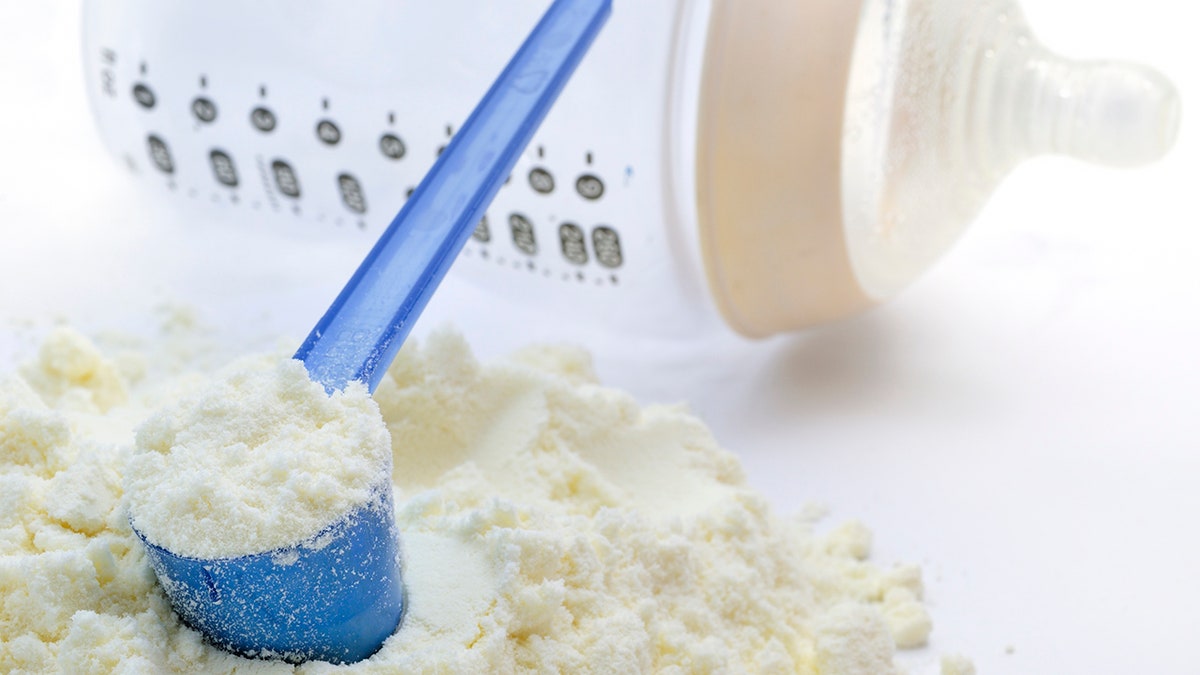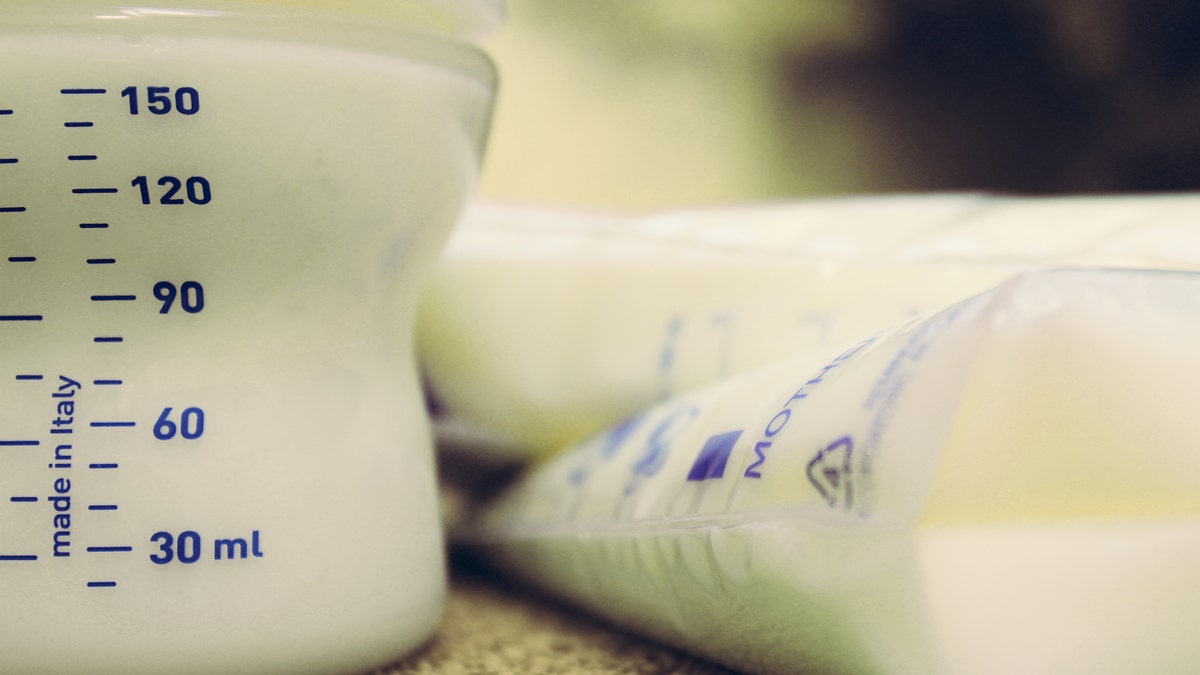Baby formula shortage 'matter of life and death': Biden administration contacting formula suppliers globally
Fox News White House correspondent Peter Doocy covers the latest news on the baby formula shortage affecting millions of American families on 'Special Report.'
As the baby formula shortage continues to affect parents and caregivers in America, many are left wondering if it’s safe to turn to other brands that remain on sparse store shelves.
The question has been a top search in the last month, according to Google Trends, which shows the query "is it bad to switch baby formula" has increased by 500%.
Searches for "switch baby formula" and "change baby formula" also spiked in the last week in 23 states, including Kentucky, Colorado, Wisconsin, Virginia and Arizona.
BABY FORMULA BY THE NUMBERS: FACTS ABOUT THE MULTIBILLION DOLLAR INDUSTRY
In most circumstances, switching baby formulas is a safe thing to do, according to feeding experts and health officials.

Store shelves are empty after a baby formula shortage. (Fox News Digital)
The United States Lactation Consultant Association (USLCA) says "switching brands or types of formula to one that is more available" is a safe and potentially helpful option that parents can take as they try to navigate the national formula shortage.
"Unless a baby is on specialty formula, most ingredients are similar, and for regular formula, switching brands is not as harmful as many believe," the association wrote in a press release on Saturday. "There are resources available to help parents compare the similar products across brands to allow families to purchase whatever formula may currently be in stock."
CAN YOU USE EXPIRED BABY FORMULA?
Jackee Haak, a North Dakota-based registered nurse and board member of the USLCA, told Fox News Digital that most baby formulas on store shelves are "generally the same, no matter the brand."
"They are all consistent with their macronutrients – fats, carbohydrates and proteins – per ounce, as well as their vitamins, minerals, and electrolytes," she continued.

Most babies can be switched to a different formula without issue. (iStock)
Twenty-nine nutrients are required in formulations made by FDA-registered formula manufacturers, according to a consumer Q&A published by the U.S. Food and Drug Administration.
The FDA has a list of exempt infant formulas that are marketed in the U.S., which are manufactured to address temporary and long term health conditions. Some of these formulas are prescribed by pediatricians.
BABY FORMULA SHORTAGE: WHICH FOODS AND TECHNIQUES BOOST BREAST MILK PRODUCTION?
"Switching from the prescribed formula is where parents should exercise extreme caution," Haak told Fox News Digital.
"If an infant is prescribed a specialty formula, the reason behind that prescription could range from an allergy to a need for different nutrition (ie: higher calorie for premature infants) or something like a metabolic disorder that leaves the infant unable to process certain nutrients," she explained.
Most shelf brand formulas that are deemed "regular" can be switched without issue, according to Haak.

Twenty-nine nutrients are required in formulations made by FDA-registered formula manufacturers. (iStock)
"There may be some formulas where it's more of a parental preference," Haak said. "They might notice their infant is a little fussier while taking it, but [it] likely wouldn't cause harm with short term use."
CLICK HERE TO GET THE FOX NEWS APP
"We would always recommend checking with the infant's medical provider to verify," Haak continued. "[But,] temporarily switching an infant's formula when they do not have any of the medical conditions mentioned is preferred to making a homemade formula. There’s a delicate balance of electrolytes that could cause a lot of damage if they are off."
The American Academy of Pediatrics also wrote "it is OK to switch to any available formula, including store brands, unless your baby is on a specific extensively hydrolyzed or amino acid-based formula such as Elecare (no store brand exists)," in a recent baby formula shortage guide.
Baby formulas shouldn’t be diluted with water because it "reduces the amount of nutrients [a] baby will receive," including electrolytes, calcium, sodium and potassium, the AAP’s guide noted.

Babies that have a prescribed baby formula can't be switched to a ‘regular’ formula as easily. (iStock )
Excess water in baby formulas can also "slow growth and development" or "lead to major health problems including seizures." The AAP recommends following manufacturer instructions when preparing formulas.
The USDA’s Food and Nutrition Service referred to the pediatric group’s guide on Friday, May 13.
FOLLOW US ON FACEBOOK FOR MORE FOX LIFESTYLE NEWS
Animal- and plant-based milks can be given to babies that reach the age of one, according to the USDA. Exceptions can be made for babies under 12 months if a pediatrician has provided a parent with clear guidance.









































